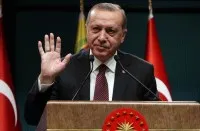The recently concluded 10th annual BRICS Summit in Johannesburg was significant as it saw China openly calling for the BRICS+ format of expanded inter connectivity to take clear precedence over the more limited five nation format favoured by rival India. At the same time, in seeking and largely achieving to expand the attraction of the BRICS throughout the wider developing world, China’s focus on Africa as the continent where a BRICS+ format could bring about the most meaningful positive change was both unambiguous and significant.
While China remains deeply connected to its fellow Asian partners, in looking to help the world’s most infrastructurally and industrially underdeveloped continent achieve monumental rises in living standards and sustainable economic development, China has staked much of its own international prestige on its ability to make the African dream of independence combined with moderate prosperity into a reality by the beginning of the 22nd century.
When speaking before his fellow BRICS including host nation South Africa in addition to several other representatives of African states including Angola, Botswana, Democratic Republic of Congo, Egypt, Gabon, Lesotho, Madagascar, Malawi, Mozambique, Namibia, Rwanda, Senegal, Seychelles, Tanzania, Togo, Uganda, Zambia, Zimbabwe, Chinese President Xi Jinping proclaimed,
“We should understand, support, stay forever with and help each other, taking ‘BRICS Plus’ cooperation as an opportunity to build an open, inclusive, cooperative and win-win partnership and create a platform for deepening South-South cooperation”.
He continued,
“We should together seize the opportunity of the BRICS Partnership on New Industrial Revolution set up at this summit to take the high ground of development, and release our potential in complementarities and coordination, so as to achieve innovative, interconnected and inclusive development”.
Before inviting his African partners to September’s Beijing Summit of the Forum on China-Africa Cooperation, he said
“China and Africa have been good friends, good partners and good brothers, said Xi, adding that with joint efforts, the China-Africa comprehensive strategic cooperative partnership has developed rapidly, having formed a pattern of all-round, multi-level and wide-ranging cooperation that benefits billions of people. Regardless of how the international order changes, China will continue to maintain the policy of sincerity, real results, affinity and good faith and uphold justice and shared interests to continuously support Africa in achieving prosperity”.
In this sense, irrespective of what India, Brazil or even Russia might say (President Putin at his press conference said that the BRICS has no immediate plans to formally expand), the BRICS+ is a reality and this reality has largely been created by China’s direct outreach to African nations which takes place in multiple forums including the BRICS, as well as in bilateral meetings and outreach initiatives.
While Xi Jinping Thought on Socialism with Chinese Characteristics for a New Era is designed to address the needs of an increasingly connected global economy where nations are ever more reliant on good partnerships for sustainable economic growth than at any time before in the modern era, Xi Jinping Thought is equally appealing to progressive-reformist African thinkers who recall that during the Cold War, Mao’s Three World’s Theory specifically classed China as a third world nation along with all of Africa and Asia (with the exception of Japan). Thus, rather than approach Africa from the position of an economic and military superpower to would be clients, China’s consistent attitude of treating the developing world as equals has clearly won hearts and minds throughout Africa.
While China is already a major builder of infrastructure throughout the continent and while Chinese investment continues to be offered at vastly more favourable rates vis-a-vis western finance houses, Xi’s pre-BRICS summit tour of several African states combined with his pro-African stance at the summit in Johannesburg makes it clear that so far as China is concerned, things have only begun in respect of the Sino-African partnership.
In this sense, the decision for Africa is simple - continue an old and long discredited status quo of subservience to the neo-Apartheid foreign and geo-economic policies of North America and Europe or embrace a win-win model which represents the clear last best hope for African peoples who have long yearned to enjoy the material wealth of their continent that for centuries has been exploited by outsiders operating on the zero-sum colonial mentality.
While the 21st century will likely be recorded in the annals of history as the Chinese century, as the People’s Republic looks to rapidly overtake the US as the world’s largest economy, it is also becoming increasingly clear that the 21st century will also be the Sino-African century as China looks to impart its own experience in order to help Africa to achieve its own goals from a position of a meaningful partnership based on respect and a shared fraternal third world history.






